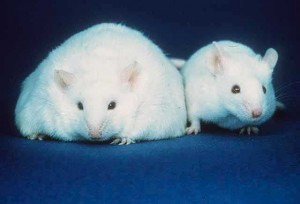MONDAY, 4 APRIL 2016
 Obesity increases risk of diseases such as cardiovascular disease, diabetes and certain types of cancer.
Obesity increases risk of diseases such as cardiovascular disease, diabetes and certain types of cancer.The mice that were given the OGT-inhibiting virus increased their daily food intake significantly, eating twice as much as control mice, and gained three times as much fat tissue. They only maintained normal weight when the researchers gave them limited access to food. The authors of the study explained their results, specifying: “The animals ate more at meal times, rather than eating more often. Thus, OGT seems to regulate satiety and helps to couple caloric intake to caloric need.”
A few anti-obesity drugs have already been developed that target certain pathways in the brain involved with appetite, impulse control, and satiety, but this latest research creates the potential for another form of obesity treatment relying on increasing the levels of OGT protein in the brain.
DOI: 10.1126/science.aad5494
Written by Annabelle Monnot
